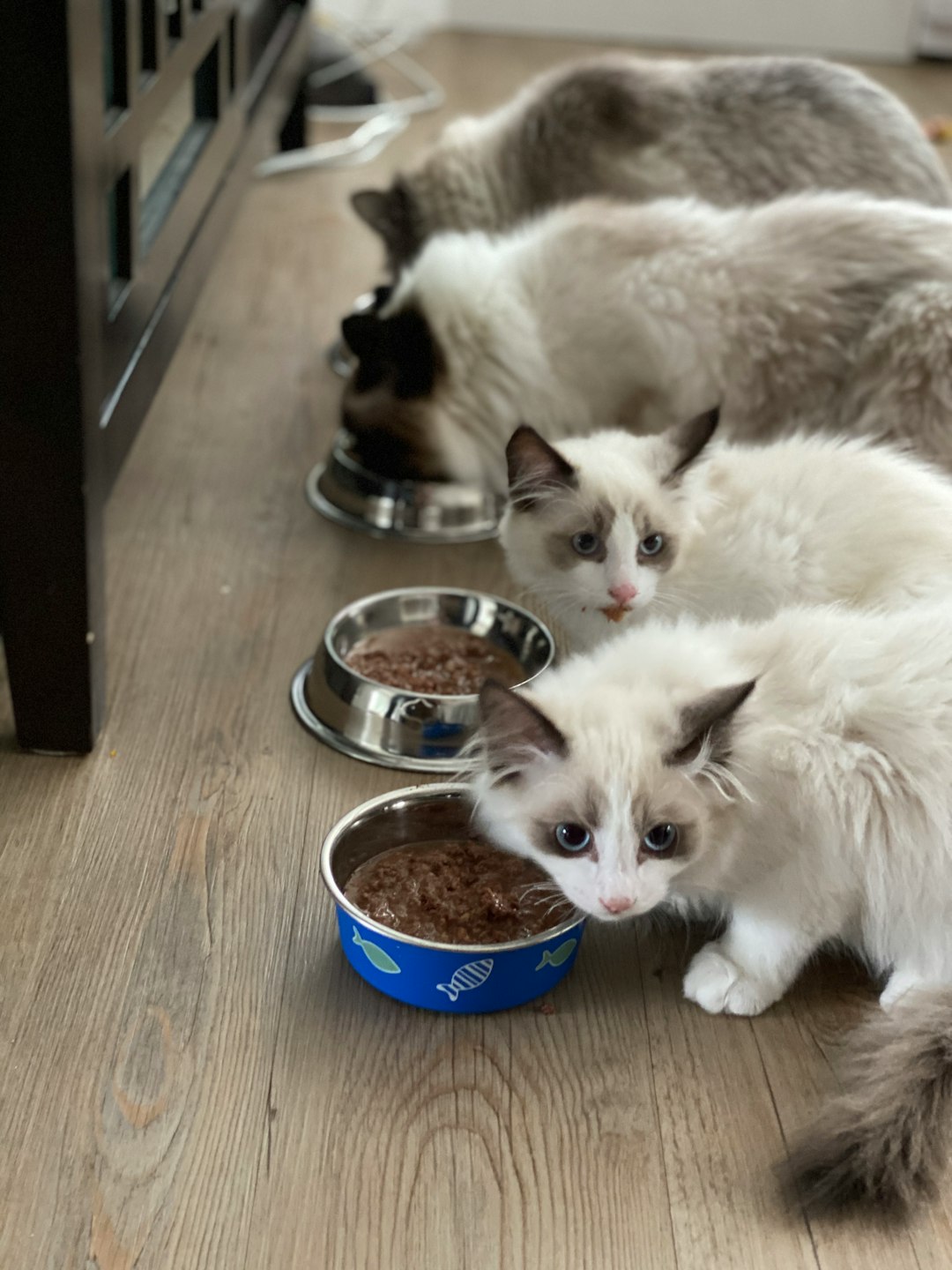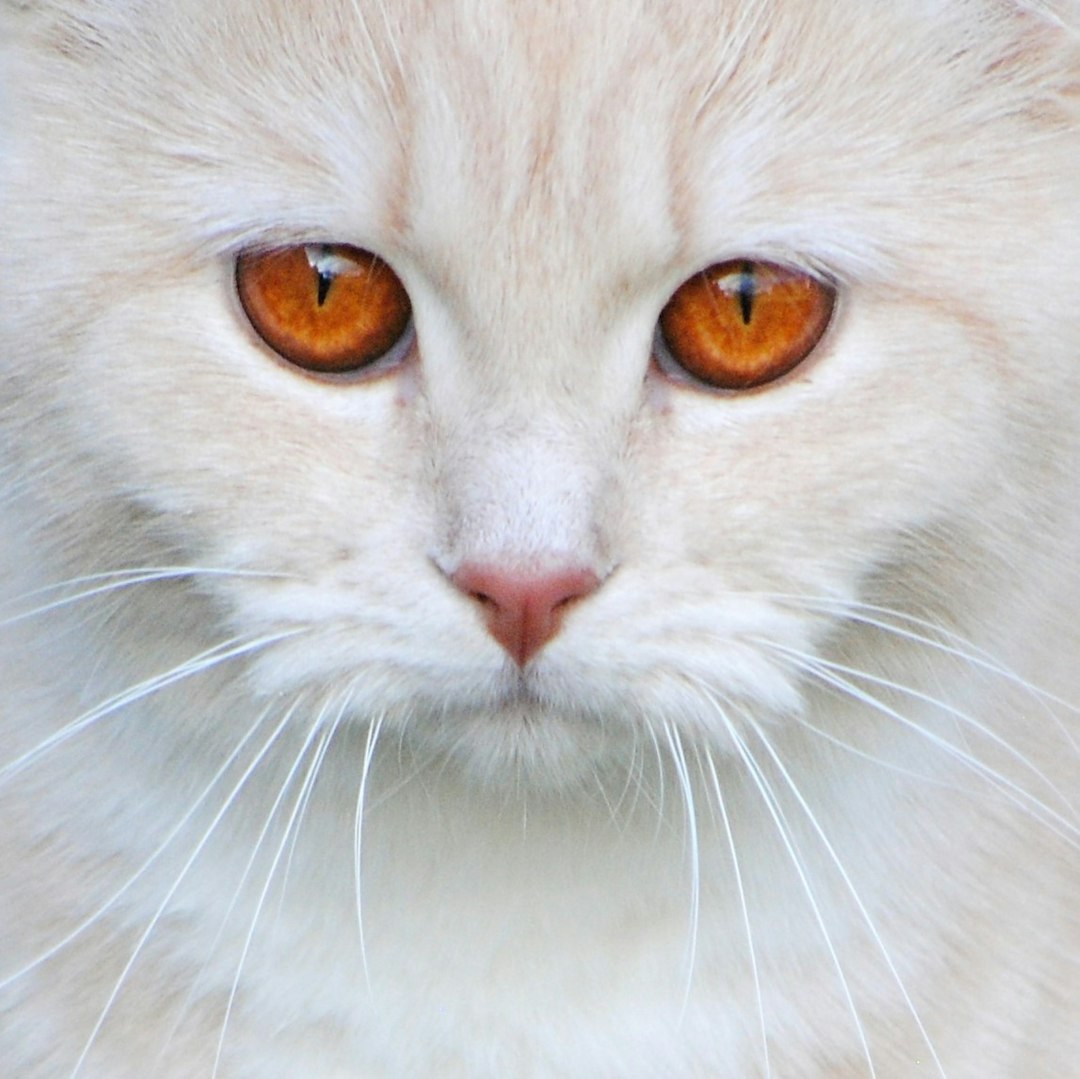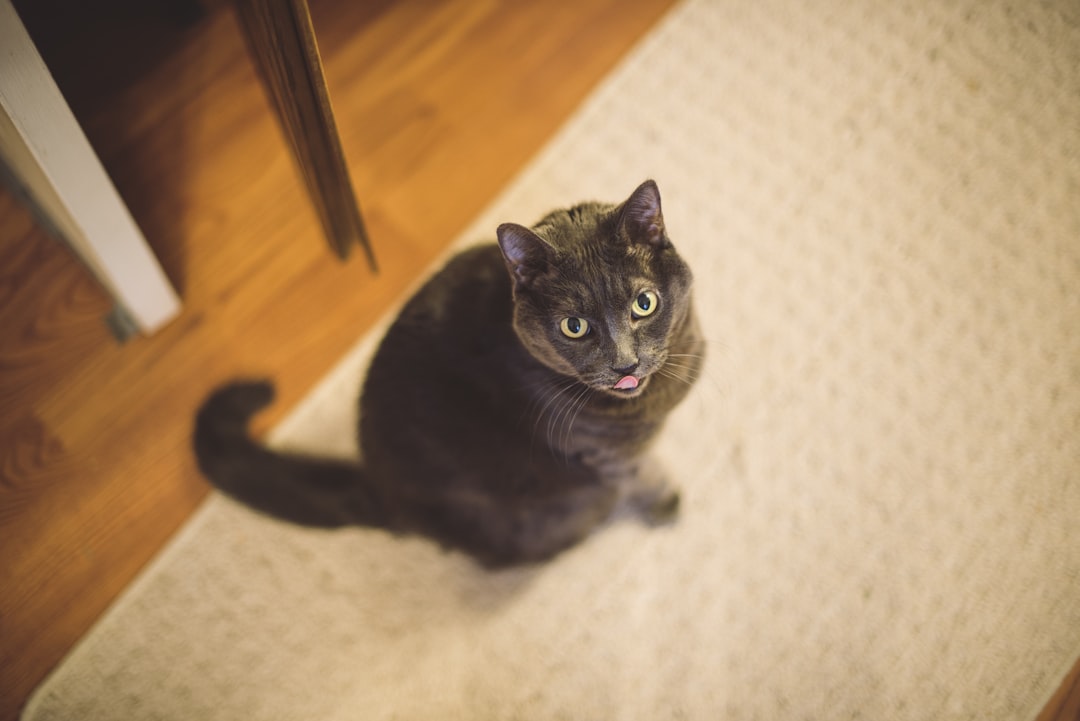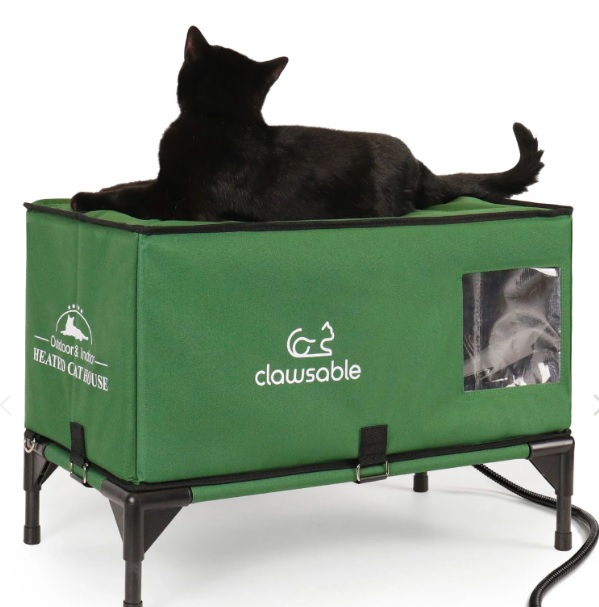When it comes to ensuring the health and well-being of your feline friend, finding the right veterinarian is essential. Cats have unique healthcare needs that require specialized knowledge and care, making the choice of a vet particularly crucial. In this post, we will delve into the importance of selecting city cat vets who understand these specific requirements and how to effectively research and evaluate potential candidates. You’ll learn key tips on assessing vet qualifications, understanding the services they offer, and even how to navigate costs while prioritizing your cat’s health. By the end of this guide, you’ll be equipped with the knowledge to find a veterinarian who not only provides exceptional care but also fosters a lasting relationship with you and your beloved pet.
Understanding Your Cat’s Unique Healthcare Needs
Caring for a cat goes beyond providing food, water, and shelter; it involves understanding their unique healthcare needs to ensure a long, happy life. As a pet owner, it is imperative to recognize that cats have specific health requirements unlike other animals, which makes selecting the right veterinary care essential. Here are some key aspects to consider when addressing your cat’s healthcare needs.
1. Routine Veterinary Visits
Regular check-ups are the cornerstone of feline healthcare. Unlike dogs, cats tend to be more adept at hiding signs of illness, which can lead to serious health issues if not detected early. Here’s why routine visits are crucial:
- Early Diagnosis: Cats can suffer from conditions like kidney disease, hyperthyroidism, and dental issues. Regular check-ups allow veterinarians to detect these illnesses early.
- Preventative Care: Routine visits include vaccinations and parasite control, helping to protect your cat from common diseases and infections.
2. Nutrition Requirements
Cats are obligate carnivores, meaning they require a diet that is primarily composed of meat. Understanding your cat’s nutritional needs involves:
- Balanced Diet: Look for cat food that is rich in high-quality protein. Consult a vet for recommendations tailored to your cat’s age, weight, and lifestyle.
- Hydration: Ensure your cat has constant access to fresh water. Dehydration can lead to urinary tract issues, which are common in cats.
3. Understanding Breed-Specific Needs
Different cat breeds have unique healthcare considerations. For example:
- Persians: Prone to respiratory issues and require regular grooming to prevent matting.
- Siamese: More susceptible to dental problems and have specific dietary needs.
4. Age Considerations
Healthcare needs can vary significantly based on your cat’s age. Younger cats and kittens often require vaccinations, whereas senior cats typically need more specialized care. Here’s a breakdown of care requirements at different life stages:
| Age Group | Healthcare Needs | Recommended Actions |
|---|---|---|
| Kittens | Vaccinations, spaying/neutering | Schedule initial vet visits at 6-8 weeks. |
| Adults | Regular vaccinations, dental care | Annual check-ups and preventive care. |
| Senior Cats (7+) | Routine bloodwork, monitoring of chronic conditions | Bi-annual vet visits; watch for changes in behavior. |
5. Behavioral Health
Finally, care for a cat isn’t only physical. Understanding behavioral health is equally important. Consider these factors:
- Socialization: Cats vary in social needs; some thrive on interaction while others may prefer solitude.
- Stress Management: Cats can experience stress from changes in their environment, such as moving homes or new pets. Ensuring a safe, comforting home is crucial.
In summary, recognizing your cat’s unique healthcare needs means considering their physical, nutritional, and behavioral aspects. This understanding enables informed decision-making when selecting a veterinarian, ensuring that your feline companion receives the specialized care they deserve. Through consistent routine checks, tailored diets, and attention to their psychological well-being, you can contribute significantly to your cat’s overall health, thereby promoting a fulfilling life together.

The Importance of Choosing a Specialized Cat Veterinarian
When it comes to your feline companion’s health, selecting the right veterinarian is crucial. While general practitioners can treat a wide variety of animals, specialized cat veterinarians possess unique qualifications and insights that can significantly improve your cat’s health outcomes. Here’s why investing the time to find city cat vets is essential for your fur baby.
Expertise in Feline Medicine
Cats are not small dogs; their anatomical and behavioral needs are distinct. A specialized feline veterinarian has extensive training focused solely on the unique health challenges cats face. Here are some critical areas where their expertise shines:
- Understanding Feline Behavior: Cat vets are trained to interpret feline body language and behaviors, allowing for more accurate diagnoses and better interactions.
- Tailored Treatment Plans: A cat’s metabolism and physiology differ from other pets. Specialized veterinarians design treatment plans specifically catered to these nuances, ensuring your cat receives the best care.
Feline-Specific Services
Many city cat vets offer services specifically designed to meet the needs of cats. These services may include:
- Dental Care: Dentists specifically trained in feline dentistry can identify and address dental issues that are especially prevalent in cats.
- Nutritional Counseling: Cat vets can provide tailored advice on diets that consider dietary needs and natural behaviors of cats.
- Behavioral Support: Should your cat exhibit behavioral issues, a feline specialist may provide effective solutions grounded in understanding the species’ innate behavior.
Early Detection of Health Issues
Specialized veterinarians are adept at spotting the early signs of health problems that may go unnoticed by general practitioners. They often look for:
- Subtle Behavioral Changes: Variation in activity levels, form of play, or social interaction can indicate underlying issues.
- Feline-Specific Symptoms: Symptoms like changes in litter box habits or grooming patterns can signal health disorders that only a specialized vet would recognize.
Connections with Cat-friendly Facilities
Partnering with a vet who specializes in cats can open doors to a network of cat-friendly facilities, including:
- Cat-only Clinics with Less Stress: Facilities designed specifically for cats usually have a calming environment, reducing stress during visits.
- Referrals to Specialists: Should your cat require more advanced care, specialized veterinarians can swiftly connect you to dermatologists, cardiologists, or oncologists who focus on feline-specific ailments.
Comparison Table: General Veterinarian vs. Specialized Cat Veterinarian
| Feature | General Veterinarian | Specialized Cat Veterinarian |
|---|---|---|
| Training | General animal care | In-depth feline medicine |
| Behavioral Insights | Limited | Extensive |
| Services Offered | General treatments | Feline-specific treatments |
| Facilities | Mixed practice | Cat-only clinics |
| Early Detection Skills | Moderate | High |
Long-term Relationship Building
A specialized veterinarian can foster a long-term relationship with both you and your cat, helping to develop trust and understanding. When you and your cat are comfortable visiting the vet, it encourages regular check-ups and preventative care, which are vital for long-term health.
In summary, choosing a specialized cat veterinarian offers numerous advantages that extend beyond standard care. By prioritizing your cat’s unique healthcare needs, you are choosing to invest in a relationship that will yield better health outcomes and overall well-being for your beloved pet. Remember, your cat deserves to have a healthcare provider who understands them inside and out.
Researching Local Cat Vets: Where to Start
Researching local cat vets can seem like a daunting task, especially if you are new to an area or just recently became a cat owner. However, finding a specialized veterinarian for your feline friend is crucial, as it directly impacts their health and wellbeing. To effectively navigate through the options available, consider the following strategies:
Utilize Online Resources
The digital age offers countless tools to help pet owners identify potential city cat vets. Start by utilizing the following platforms:
- Veterinary Association Websites: Websites such as the American Veterinary Medical Association (AVMA) or your local veterinary college can help you find accredited cat vets in your area.
- Review Sites: Platforms like Yelp, Google Reviews, or Angie’s List provide a consolidated view of customer experiences. Pay attention to:
- Overall rating
- Frequency of reviews
- Specific feedback on services offered
Social Media and Online Communities
In today’s connected world, social media platforms and online forums can serve as valuable resources in your search:
- Facebook Groups: Join local pet owner groups where you can ask for recommendations. Members often share their experiences, leading you to specialist veterinarians.
- Reddit: Subreddits such as r/cats can be a great place to seek advice. Cat owners frequently discuss their favorite local vets, offering insights and tips.
Networking with Other Cat Owners
Building connections with fellow cat owners can significantly aid your research. Here’s how to make the most out of your networking efforts:
- Pet Meetups: Attend local cat shows, adoption events, or community meetups. You’ll have the chance to interact with other cat owners who can provide referrals.
- Local Shelters and Rescues: Speak with staff at local animal shelters or rescue organizations. They often have solid relationships with vets and can recommend trusted professionals based on their experiences with the animals they care for.
Compare and Contrast
Once you have a list of potential city cat vets, the next step is comparing their services and specialties. Create a side-by-side comparison table to visualize your options.
| Vet Name | Specializations | Years of Experience | Emergency Services Available | Client Rating |
|---|---|---|---|---|
| Feline Wellness | General Health, Senior Care | 15 Years | Yes | 4.8/5 |
| Purrfect Paws | Behavioral Issues, Nutrition | 10 Years | No | 4.5/5 |
| Whiskers Clinic | Dental Health, Preventive Care | 20 Years | Yes | 4.9/5 |
This table structure allows you to compare key attributes and easily filter through the information that matters most to you.
Take the Next Step
Once you’ve narrowed down your choices, consider scheduling meet-and-greet appointments. During these initial visits, observe the clinic environment:
- Cleanliness: Ensure the clinic is tidy and well-organized. A clean facility is typically indicative of care standards.
- Staff Behavior: Evaluate how the staff interacts with both you and other animals. Compassionate and knowledgeable staff can significantly enhance your experience.
- Facility Availability: Ensure the clinic has the necessary equipment for your cat’s specific needs.
By methodically researching local cat vets and utilizing these tips, you can make an informed decision that will benefit your feline companion for years to come.
Evaluating Vet Qualifications and Experience
When searching for the right veterinarian for your feline friend, understanding the qualifications and experience of city cat vets is crucial. This section will guide you through essential aspects you should consider in evaluating veterinary professionals for your cat’s unique needs.
Key Qualifications to Look For
Education Background:
- Ensure the veterinarian has obtained a Doctor of Veterinary Medicine (DVM) degree from an accredited institution. This foundational education establishes their expertise in animal care.
- Look for additional certifications, such as a Bachelor’s in Animal Science or a related field, which can enhance their understanding and skill set.
Licensing and Accreditation:
- Verify that your veterinarian is licensed to practice in your state. This ensures they have met all legal and professional requirements.
- Check for any board certifications in feline medicine from organizations such as the American Board of Veterinary Practitioners (ABVP) specialized in feline practice.
Specialized Training:
- Many city cat vets pursue further training in specific fields, such as:
- Emergency and critical care
- Behavior and training
- Internal medicine specific to felines
- Specialized education may indicate a deeper understanding of unique feline health challenges.
- Many city cat vets pursue further training in specific fields, such as:
Experience Matters
Experience plays a pivotal role in the quality of care your cat receives. Consider the following:
Years in Practice:
- An established vet with several years of hands-on experience may have encountered a broader range of health issues and emergencies.
- Longevity in the field often means they have honed their skills and knowledge over time.
Exposure to Different Breeds and Conditions:
- Inquire whether the veterinarian has experience with various breeds and known health issues specific to those breeds. Some cats have distinct health risks related to their breed type.
Professional Development:
- Check if the vet actively participates in continuing education programs. Staying current with the latest medical advancements ensures they provide modern and effective care.
Suggested Evaluation Table
| Qualification Aspect | Importance |
|---|---|
| Educational Background | A DVM degree from an accredited institution guarantees foundational veterinary knowledge. |
| Licensing and Accreditation | A licensed vet proves adherence to legal and professional standards, ensuring compliance in care. |
| Specialization | Specialized training increases the vet’s expertise in addressing feline-specific health issues, enhancing the quality of care. |
| Years of Experience | More years indicate exposure to diverse medical conditions, improving diagnostic and treatment skills. |
| Continuing Education | Active participation in workshops and courses showcases commitment to learning and staying updated on best practices, improving patient outcomes. |
Personal Interaction and Communication Skills
Lastly, evaluate how well the veterinarian communicates with you. Strong communication skills are essential not only for explaining your cat’s health condition but also for easing pet owner concerns.
Initial Consultation:
- Observe whether they take the time to listen to your concerns about your cat’s health and well-being.
- A good vet patiently answers any questions you might have and provides comprehensive insights into your cat’s care.
Engagement with Staff:
- A positive demeanor with clinic staff often reflects a supportive environment, crucial for both veterinary practice and patient care.
By carefully evaluating these qualifications and experiences, you empower yourself to make informed decisions, ensuring your cat receives the best possible care from dedicated professionals.

Reading Reviews and Testimonials from Other Pet Owners
When it comes to selecting the right veterinarian for your feline friend, leveraging the experiences of other pet owners can be incredibly valuable. Reading reviews and testimonials can shed light on the quality of care, customer service, and overall satisfaction offered by various city cat vets. By taking the time to explore these insights, you can make a more informed choice.
Why Reviews Matter
- Firsthand Experiences: Reviews provide real-life accounts of pet owners’ experiences. They can offer insights into the effectiveness of the treatment received and the professionalism of the veterinary staff.
- Identifying Patterns: Consistent feedback—whether positive or negative—can reveal patterns concerning specific issues, such as the vet’s approach to care, communication skills, or follow-up services.
- Setting Expectations: Reviews can help you set realistic expectations regarding appointment wait times, costs, and the treatment offered for various conditions common to cats.
Where to Find Reviews
Finding reviews is simplified thanks to numerous platforms available online. Here are some prominent venues for researching vet reviews:
- Google Reviews: Simply search for local cat veterinarians and check their reviews. This platform aggregates feedback from different customers, providing an overall rating.
- Yelp: Known for consumer reviews, Yelp allows pet owners to share detailed accounts and rate their experiences. This can help identify strengths and weaknesses more clearly.
- Facebook Groups and Community Forums: Many local pet-oriented groups on social media encourage discussions about cats and their care. Posts seeking recommendations or sharing experiences can yield valuable insights.
- Veterinary Websites: Some veterinary clinics have sections dedicated to reviews or testimonials directly on their websites, allowing you to see curated feedback.
Key Points to Look For
When reading reviews, focus on specific aspects that will impact your decision. Consider these categories as you assess the feedback:
| Aspect | Positive Indicators | Red Flags |
|---|---|---|
| Staff Interaction | Friendly, knowledgeable, and compassionate staff | Rude or unhelpful customer service |
| Facility Cleanliness | Well-maintained and sanitized environment | Unkempt or cluttered spaces |
| Treatment Outcome | Successful outcomes and effective communication about care | Unclear results or unresolved issues |
| Wait Times | Prompt service and minimal wait times | Consistently long wait times |
| Follow-Up Care | Attention to follow-up communications | Lack of follow-up or response |
The Importance of Balanced Perspectives
While positive reviews are encouraging, don’t shy away from reading negative feedback. A single negative comment may not indicate a poor vet; however, if multiple reviews cite similar issues, it may warrant caution. Balance your considerations by weighing both compliments and critiques to get an overall sense of a vet’s reliability and capabilities.
Final Thoughts
Reading reviews and testimonials is a powerful tool in your search for the best city cat vets. By combining these insights with your own research and evaluations, you can create a comprehensive picture of what to expect. Remember, your cat deserves a healthcare provider who is not only skilled in veterinary medicine but also understands their unique needs and anxieties. Thus, make sure to take the time to analyze testimonials, as they can guide you towards a confident decision for your beloved pet’s healthcare.
Visiting the Veterinary Clinic: What to Look For
When seeking the right veterinarian for your feline companion, a visit to the clinic is a crucial step. It allows you to assess not only the facility but also the overall environment and services that will contribute to your cat’s healthcare. During this visit, several factors warrant your attention to ensure that your chosen city cat vet is well-equipped to meet your pet’s needs.
Cleanliness and Safety
One of the first impressions a veterinary clinic will make is its cleanliness. A well-maintained facility operates with the highest health standards. Here’s what to check:
- Sterilization: Look for areas that have been sanitized properly to prevent infections. This includes waiting rooms, exam rooms, and surgical areas.
- Odor: A pleasant smell indicates proper cleaning protocols, while unpleasant odors might suggest neglect.
- Safety Measures: Ensure that there are safety protocols for handling pets, especially if you have a cat that may be more anxious or aggressive in a new environment.
Staff Interaction and Attitude
The demeanor of the staff is equally important and can significantly affect your experience. They should display:
- Friendly Behavior: Notice how staff members interact with both animals and their owners. A welcoming attitude fosters a positive environment.
- Knowledge: Staff should answer any questions you have and provide clear information about processes and procedures.
- Compassion: Pay attention to their interactions with other pets in the clinic. Compassionate care reflects the clinic’s overall philosophy toward pet health.
Facilities and Equipment
The quality of the clinic’s facilities is crucial. You’ll want to look for:
- Waiting Area: Space should be ample to prevent overcrowding and allow pets to maintain a comfortable distance from one another.
- Examination Rooms: Look for clean, well-equipped examination rooms where your cat will receive care.
- Advanced Equipment: Modern veterinary clinics often feature diagnostic tools like digital X-rays, ultrasound machines, and blood testing facilities. This can lead to faster diagnoses and better treatment options.
Services Offered
It’s essential to ensure that the clinic offers a comprehensive range of services tailored to feline care. Some important services to look for include:
- Preventive Care: Regular check-ups, vaccinations, and wellness programs designed for cats.
- Dental Care: Dental hygiene is crucial for long-term health, so inquire about teeth cleaning and oral health checks.
- Behavioral Consultation: If your cat has behavioral issues, the availability of behavioral consultations can be a significant asset.
- Emergency Services: 24/7 emergency services are vital, especially in a bustling city where accidents can happen.
Communication and Education
A good veterinarian not only treats your pet but also educates you on their health and wellness. Look for:
- Clear Communication: How well the veterinarian explains medical terminology and treatment options.
- Educational Materials: Pamphlets or resources that can help you understand feline health and behavior better.
- Follow-up Plans: Discuss whether they establish follow-up visits or phone calls after treatment to monitor your cat’s progress.
By keeping these factors in mind during your visit to a veterinary clinic, you will be better equipped to make an informed decision. Remember, your pet’s health is paramount, and finding the right city cat vet can lead to many happy years together!
Understanding Services Offered by Cat Vets
When it comes to the health and well-being of your feline companion, understanding the services offered by cat veterinarians is crucial. Many pet owners mistakenly think that all veterinary clinics provide the same services for cats and dogs. However, specialized city cat vets focus on the unique needs of felines, ensuring a higher level of care tailored to your cat’s specific requirements. Let’s examine the primary services these experts provide.
Core Veterinary Services
Routine Health Care
- Regular check-ups: Preventive examinations are essential for early detection of health issues.
- Vaccinations: Common shots, such as rabies and feline distemper, protect against infectious diseases.
- Parasite control: Flea, tick, and worm prevention is vital to maintain your cat’s health.
Diagnostic Services
- Blood tests: Routine blood work can reveal underlying health problems.
- Urinalysis: This test helps assess kidney function and check for infections.
- Imaging: X-rays and ultrasounds provide valuable visual insights into internal health.
Dental Care
- Professional cleanings: Regular dental check-ups help prevent periodontal disease.
- Extractions: Specialized perform surgical extractions when necessary.
- Education: Awareness of proper dental care to maintain your cat’s mouth hygiene.
Specialized Treatment Options
Behavioral Therapy
- Consultation on behavioral issues: Address problems like aggression, litter box issues, and anxiety.
- Home modification recommendations: Ideas to create a stress-free environment for your cat.
Nutritional Counseling
- Tailored diet plans: Specialized nutrition consultations for weight management and specific health conditions.
- Prescription diets: Veterinary-recommended food for special health requirements like kidney disease.
Feline-specific Surgery
- Spaying and neutering: Essential procedures to control the cat population and promote health.
- Soft tissue surgeries: Addressing abscesses, tumors, or other health-related issues unique to cats.
Emergency and Critical Care
- Emergency services: Specialized emergency care is often available for urgent situations—especially vital when a cat has ingested toxic substances or sustained injuries.
- Critical care facilities: Access to 24/7 care when a serious health crisis arises.
Ancillary Services
Grooming and Hygiene
- Bathing and grooming: Ensuring your cat stays clean and healthy, preventing matting and skin problems.
- Nail trimming and ear cleaning: Part of maintaining your cat’s overall hygiene.
Pet Insurance Consultation
- Guidance on insurance plans: Help with navigating the often confusing world of pet insurance.
- Payment plans: Discussing options for making veterinary care more accessible.
End-of-Life Care
- Palliative care: Comfort-focused care for terminally ill cats.
- Euthanasia services: Compassionate support for pet owners facing difficult times.
Quick Reference Table of Services
| Service Category | Examples |
|---|---|
| Routine Health Care | Vaccinations, Flea control, Regular check-ups |
| Diagnostic Services | Blood tests, X-rays, Urinalysis |
| Specialized Treatments | Nutritional counseling, Behavioral therapy |
| Emergency Care | 24/7 critical care, Toxic ingestion treatment |
| Ancillary Services | Grooming, Insurance consultation, End-of-life care |
Understanding the wide array of services provided by city cat vets will not only enhance your ability to make informed choices about your cat’s healthcare but also foster a long-term relationship with a veterinary professional who truly understands your furry friends. Recognizing these offerings empowers you as a pet owner to take a proactive role in ensuring optimal health for your beloved feline companion.

The Role of Emergency Care in Cat Health
When it comes to your feline friend’s healthcare, ensuring you have access to emergency services can be crucial. Cats, by nature, can be independent and sometimes aloof, masking signs of illness or distress until the situation has escalated. As a responsible pet owner, understanding the role of emergency care is essential in safeguarding your cat’s health.
Why Emergency Care Matters
Emergency veterinary care provides immediate attention for situations that require urgent intervention. Unlike routine check-ups, emergency services are designed to handle critical conditions such as:
- Trauma: Injuries from accidents, falls, or fights can lead to serious complications.
- Poisoning: If a cat ingests toxic substances (e.g., plants, chemicals, or human foods), rapid treatment is vital.
- Breathing difficulties: Respiratory distress can signify underlying health issues needing prompt care.
- Severe vomiting or diarrhea: These conditions can lead to dehydration and other complications, particularly in young or elderly cats.
- Uncontrollable bleeding: This signals a potentially life-threatening situation that must be addressed immediately.
Key Features of an Emergency Vet
Not every veterinary clinic is equipped for emergencies; thus, you need to identify city cat vets that specialize in urgent care. Look for clinics that offer:
- 24/7 availability: Round-the-clock services ensure that help is always at hand.
- Advanced diagnostic tools: Facilities should have essential equipment like X-rays, ultrasound, and laboratory tests to diagnose conditions quickly.
- Emergency surgical suites: Some situations may require immediate surgical intervention, so having access to a fully-equipped surgical area is crucial.
| Features of Emergency Veterinary Care | Importance |
|---|---|
| 24/7 Availability | Ensures immediate care for unexpected situations |
| Advanced Diagnostic Tools | Facilitates quick and accurate diagnosis |
| Emergency Surgical Suites | Provides immediate surgical care when needed |
| Experienced Emergency Veterinary Staff | Ensures skilled professionals attend to critical cases |
Preparing for an Emergency
A proactive approach can significantly enhance your response to a potential emergency. Consider the following preparations:
Emergency Vet Contact List: Keep a record of city cat vets that offer emergency services. This list should be easily accessible, and it is wise to include:
- Clinic name
- Address
- Phone number
- Emergency after-hours contact
Basic First-Aid Knowledge: Familiarizing yourself with basic cat first aid could save precious time during an emergency. Learn about performing CPR, managing bleeding, and recognizing common poisonous substances.
First Aid Kit: Assemble a first-aid kit for your cat. Include items such as gauze, antiseptic wipes, scissors, and tweezers.
Understanding Your Responsibilities
As a pet owner, your primary responsibility is to ensure your cat has access to appropriate healthcare. Knowing when to seek emergency help can be the difference between life and death. Always trust your instincts—if you feel something is wrong, don’t hesitate to contact a vet.
In summary, emergency care plays a vital role in cat health. By understanding its significance, you can take proactive measures to prepare for unforeseen circumstances, ensuring your feline companion receives the best possible care when it matters most.
Comparing Costs: What to Expect from Vet Services
When it comes to caring for your feline friend, understanding the costs associated with veterinary services is essential. Veterinary care can vary significantly based on location, the complexity of the procedure, and the specific clinic you choose. This section will provide you with insights into what to expect when examining the costs of city cat vets, ensuring you know how to budget for your cat’s healthcare effectively.
Typical Veterinary Service Costs
It’s crucial to be aware of the typical costs associated with various veterinary services. Here is a breakdown of some common procedures and average costs you might encounter:
| Service | Average Cost (USD) |
|---|---|
| Routine check-up | $50 – $75 |
| Vaccinations | $15 – $50 per shot |
| Spaying/Neutering | $100 – $300 |
| Dental cleanings | $200 – $500 |
| Blood tests | $100 – $200 |
| Emergency visit | $75 – $150 plus additional fees |
| Specialized treatments | $300 – $1,500 or more |
Factors Influencing Veterinary Costs
Several factors will influence the veterinary costs you may incur. Understanding these factors can help you prepare better for future veterinary expenses:
Location: Urban areas generally have higher living costs, which often translates to higher veterinary fees. City cat vets located in metropolitan zones may charge more compared to those in rural settings.
Specialization: If your cat requires care from a specialist—for conditions like cardiology, dermatology, or oncology—you can expect to pay a premium for their expertise.
Facility Type: Emergency and specialty veterinary hospitals usually charge more than standard clinics due to their advanced equipment and specialist staff.
Age and Health of the Cat: Kittens and senior cats may require more frequent visits, vaccinations, or special treatments, leading to increased costs.
Preventive Care versus Treatment: Preventive care, such as vaccination and dental check-ups, can be more affordable in the long run, reducing the need for expensive treatments later on.
Hidden Costs to Consider
While you may plan for regular check-ups and routine care, there are often hidden costs that can arise during your cat’s veterinary visits. These include:
- Medications: Always inquire about the cost of any prescribed medications, as some can be quite expensive.
- Diagnostic Testing: Tests such as X-rays or ultrasounds can significantly increase your overall bill.
- Follow-up Visits: Additional appointments may be necessary after surgery or initial treatment, each incurring its own fee.
- Pet Insurance: If you opt for pet insurance, consider the monthly premiums and how much reimbursement you may receive for specific treatments.
Comparing Value, Not Just Costs
While it’s easy to focus solely on the price tags, it’s vital to assess the value you receive from your chosen city cat vets. Here are some things to keep in mind:
Quality of Care: A lower cost may not equate to the best care for your cat. Prioritize clinics that offer quality services, even if that means spending a bit more.
Comprehensive Services: Look for a veterinary clinic that can provide a wide range of services under one roof, saving you time and potential costs for referrals to specialists.
Client Care: Exceptional veterinary care includes how staff interact with you and your pet, as well as follow-up communication regarding your cat’s health.
Prioritizing your cat’s health while being mindful of the financial implications of vet visits is paramount. By comparing costs with an emphasis on quality and comprehensive service, you can provide your feline companion with the best care possible.
Building a Relationship with Your Cat’s Veterinarian
Establishing a strong partnership with your cat’s veterinarian is crucial for ensuring that your furry friend receives the best possible care. A positive veterinarian-client relationship not only enhances your pet’s healthcare experience but also fosters a sense of ease and confidence for you as a pet owner. Here are important considerations and strategies to help you build that essential relationship with your city cat vets.
Communication is Key
Effective communication between you and your veterinarian is paramount. Being transparent about your cat’s health history, dietary habits, behavioral changes, and any concerns you may have will equip your vet with crucial information necessary for providing tailored care. Here are a few tips on how to improve communication:
Prepare Questions: Prior to visits, draft questions regarding your cat’s health or any specific areas of concern. This ensures you cover all critical topics during the appointment.
Discuss Expectations: Clearly convey your expectations regarding care and treatment plans. This fosters clarity and helps your vet align their approaches with your preferences.
Regular Visits
Regular check-ups should form the backbone of veterinary care for your cat. These visits allow your veterinarian to establish a healthy baseline for your cat’s condition and to monitor changes over time. Additionally, routine appointments can help to:
Catch Issues Early: Preventive care is vital. Routine visits can uncover potential health problems before they escalate into serious conditions.
Build Trust: Frequent visits allow your cat to become accustomed to the clinic environment and the vet, thereby reducing fear and anxiety.
Engagement in Treatment Plans
Engaging actively in your cat’s treatment plan underscores your commitment as a pet owner. This includes:
Being Proactive: Take time to understand any prescribed treatments, medications, or dietary changes. Ask for demonstrations or additional instructions if you’re unsure.
Follow Through: Adhere to treatment plans and schedule follow-up appointments as recommended. This not only aids in your cat’s recovery but also demonstrates your dedication to their health.
Emotional Connection
A strong emotional connection can greatly enhance the relationship you have with your cat’s veterinarian.
Positive Interactions: Bring treats or toys to the vet’s office to create a convivial atmosphere. This not only delights your cat but also showcases your enthusiasm and partnership with the vet.
Share Your Pet’s Story: Personal anecdotes about your cat help the vet to understand their personality and preferences, allowing for a more personalized approach to care.
Feedback and Advocacy
Being an advocate for your pet’s health involves providing constructive feedback about the services you receive.
Express Concerns Politely: If you have reservations about a specific aspect of care, discussing them openly can help improve the overall experience for both you and your vet.
Course Correction: Be receptive to suggestions from your veterinarian, particularly if they offer modifications to treatment approaches that might better suit your cat’s needs.
Summary Table of Relationship-Building Strategies
| Strategy | Description |
|---|---|
| Effective Communication | Prepare questions and express concerns clearly. |
| Regular Visits | Schedule routine check-ups to monitor and build trust. |
| Engagement | Actively participate in treatment plans and follow recommendations. |
| Emotional Connection | Foster positive interactions and share your cat’s story. |
| Feedback and Advocacy | Provide constructive feedback and remain open to suggestions. |
By prioritizing these strategies, you will not only advocate for the best possible care for your beloved feline but also create a supportive and informed relationship with your city cat vets. This mutual respect and understanding will go a long way in ensuring that your cat receives appropriate health care throughout their life.

Frequently Asked Questions
What should I consider when choosing a cat vet in the city?
When selecting a vet for your cat in an urban area, consider factors such as the vet’s qualifications, experience with feline patients, the services they offer, and their approach to animal care. It’s essential to look for veterinary practices that prioritize preventive care, offer specialized treatments, and maintain up-to-date facilities. Additionally, reading reviews from other pet owners and visiting the clinic to gauge the environment and staff’s friendliness can help ensure a good fit for your beloved feline.
How often should I take my cat to the vet for check-ups?
Routine check-ups for your cat are typically recommended once a year, but for older cats or those with health issues, biannual visits may be necessary. Regular check-ups help monitor your cat’s health, catch any potential issues early, and keep vaccinations up to date. During these visits, the vet will conduct a thorough examination, discuss your cat’s diet and behavior changes, and suggest preventative care measures, all of which are crucial for maintaining your pet’s overall well-being.
What are some common health issues to watch for in urban cats?
Cats living in urban environments can face unique health challenges, such as respiratory issues from pollution, increased risk of infectious diseases from interactions with other animals, and stress-related conditions due to noise and crowding. Common health concerns to monitor include dental disease, obesity, and behavioral issues stemming from environmental stressors. Pet owners should be vigilant about their cat’s behavior and physical health, looking for signs like lethargy, changes in appetite, or unusual aggression, which can indicate underlying problems.
What should I prepare before visiting a cat vet in the city?
Before your visit to the vet, ensure you have your cat’s medical history, including vaccination records and any previous health issues. It’s helpful to compile a list of questions or concerns you have regarding your cat’s health or behavior, to make the most of your appointment. Bringing a comfortable carrier for your cat is essential for safe transport. Also, take note of any changes you’ve observed in your cat’s habits or symptoms, as this information will assist the vet in making an accurate assessment.



